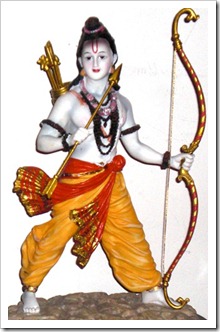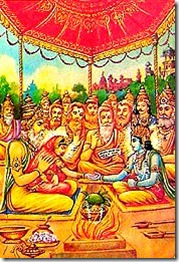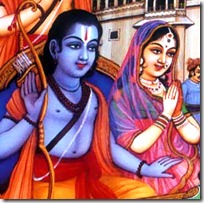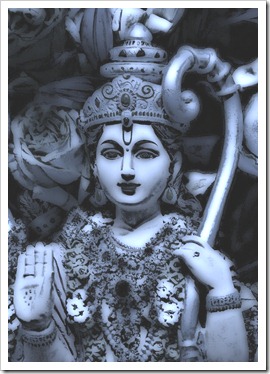| The University of Auckland |
| Problem-solving therapy may help people who attempt suicide or self-harm. Image: hidesy/iStockphoto The study is the world’s largest trial assessing the efficacy of problem-solving therapy for people who presented to hospital following attempted suicide or an intentional self-harm incident. It showed that patients who received problem-solving therapy were less hopeless, less depressed and had fewer suicidal thoughts than those who did not receive the treatment. The randomised controlled trial, funded by ACC, looked at 1094 people who presented to emergency departments between September 2005 and June 2008 at four district health boards (DHBs) in New Zealand. Findings showed that all people who received problem-solving therapy reported greater improvements in depression, hopelessness, suicidal thinking and problem-solving skills than people who received usual care alone. (Usual care following self-harm varies and may involve referral to multidisciplinary teams for psychiatric or psychological intervention, referral to mental health crisis teams, recommendations for engagement with alcohol and drug treatment centres or other health and non-health services.) Although problem-solving therapy did not lead to a lower rates of repeat self-harm incidences for all people, for those who had a previous history of attempted suicide or self harm (around 40 per cent of the group) the therapy significantly lowered their risk of presenting to hospital again with self-harm over the following year. Lead investigator Associate Professor in Psychological Medicine Dr Simon Hatcher says:“Self-harm is common and those admitted to hospital because of this are an easily identifiable high-risk group so there is an important opportunity for intervention, particularly in relation to suicide prevention. Despite this, there is no generally accepted evidence-based intervention. “The findings offer hope for those people who repeated self-harm that something can be done to help them, it shows that the burden of this problem on hospital emergency departments can be reduced and potentially it could help reduce New Zealand’s suicide rate.” The team at The University of Auckland is currently investigating whether other factors in conjunction with therapy, such as receiving regular postcards, would further improve patients’ wellbeing. Editor's Note: Original news release can be found here. |
Search This Blog
Saturday, October 1, 2011
How to cut suicide risks
This Life and the Next
 “Tulsidas says that those who love Shri Rama’s holy name, view Rama as their only abode, and have full trust in Rama’s name find auspiciousness, well-being and fortunes in both this world and the next simply by remembering that name.” (Dohavali, 39)
“Tulsidas says that those who love Shri Rama’s holy name, view Rama as their only abode, and have full trust in Rama’s name find auspiciousness, well-being and fortunes in both this world and the next simply by remembering that name.” (Dohavali, 39)rāma nāma rati rāma gati rāma nāma bisvāsa |
sumirata subha mangala kusala duhum̐ disi tulasīdāsa ||
This is a simplified, yet perfect presentation of the process for attaining well-being in both this life and the next. The soul does not cease to be at any point in time. Even when the body is slain, the soul remains alive; a fact we are so nicely reminded of by Lord Krishna, the Supreme Personality of Godhead, in the Bhagavad-gita, the Song of God delivered on the battlefield of Kurukshetra some five thousand years ago. Here a celebrated poet named Tulsidas is glorifying the holy name of Rama, which represents the same Krishna and is a non-different form of Godhead which is equally as worshipable as the original. The formula given applies specifically to chanting the holy name and the benefits that come from remembrance of that name. As the soul has two destinations that can be chosen, one present and one future, so the benefits derived from bhakti, or devotional service, apply to every circumstance the individual may find.
“For the soul there is never birth nor death. Nor, having once been, does he ever cease to be. He is unborn, eternal, ever-existing, undying and primeval. He is not slain when the body is slain.” (Lord Krishna, Bhagavad-gita, 2.20)
 The gist of the recommendation provided here is that one should invest love and faith in the name of Rama, which is the address for the Personality of Godhead that references His incarnation as Lord Ramachandra, the jewel of the Raghu dynasty, a warrior prince who rid the world of one of the most powerful evil forces ever seen. Just as in modern times there are certain men who are the most wanted and whose capture or death brings elation and a sense of comfort to the innocent, during the Treta Yuga there was one particular person who was terrorizing the innocent and simultaneously amassing an awe-inspiring level of power. To do away with this fiend, the Supreme Person Himself, after being petitioned by the saintly class in the heavenly planets, descended to earth in what appeared to be the form of an ordinary human being.
The gist of the recommendation provided here is that one should invest love and faith in the name of Rama, which is the address for the Personality of Godhead that references His incarnation as Lord Ramachandra, the jewel of the Raghu dynasty, a warrior prince who rid the world of one of the most powerful evil forces ever seen. Just as in modern times there are certain men who are the most wanted and whose capture or death brings elation and a sense of comfort to the innocent, during the Treta Yuga there was one particular person who was terrorizing the innocent and simultaneously amassing an awe-inspiring level of power. To do away with this fiend, the Supreme Person Himself, after being petitioned by the saintly class in the heavenly planets, descended to earth in what appeared to be the form of an ordinary human being.From the behavior of His associates, we can understand that Rama was actually not an ordinary man. One person especially, His wife Sita Devi, exhibited all the qualities of a devotee, or one who follows the prescriptions provided above by Tulsidas. What to speak of following any system, exalted figures like Sita Devi, who is eternally the goddess of fortune and the mother of the creation, set the standard for devotional life, showing others how to remain always in a blissful state of mind through adhering to religious principles. During one moment in Sita’s life, where it appeared that she might be separated from her beloved husband, she gave us a hint into Rama’s nature and the benefits of worshiping Him.
To set the wheels in motion for the demise of Ravana, the world’s most wanted man, Rama needed an excuse to leave His kingdom of Ayodhya and entrap the demon in a situation that would call for his slaying. First, there was Rama’s exile from His kingdom of Ayodhya. Maharaja Dasharatha, the city’s king and Rama’s father, told Rama that He was not going to be the next king as planned and ordered his beloved son to leave the kingdom and not return for fourteen years. These painful requests actually came from the king’s youngest wife, Kaikeyi, who was jealous that her son Bharata was being passed over for the throne. To ensure that there would not be any interference in her son’s newly ordered coronation, Kaikeyi insisted that Rama leave the kingdom and renounce all ties to the royal army for the next fourteen years.
 Rama, wanting to protect Sita from the dangers of the forest, insisted that she remain in the kingdom and wait for Him to return. But Sita did not know any other behavior except devotion to her husband. She had pure and ecstatic love, or rati, for Rama. She took complete shelter in Him and His name. She also had full faith in His ability to protect her. She could have kept these three feelings hidden from her husband and the rest of the world as well, but faced with an emergency, she was left with no choice but to fight for her beloved’s association. In her pleas, she revealed just how strong her love for Rama was.
Rama, wanting to protect Sita from the dangers of the forest, insisted that she remain in the kingdom and wait for Him to return. But Sita did not know any other behavior except devotion to her husband. She had pure and ecstatic love, or rati, for Rama. She took complete shelter in Him and His name. She also had full faith in His ability to protect her. She could have kept these three feelings hidden from her husband and the rest of the world as well, but faced with an emergency, she was left with no choice but to fight for her beloved’s association. In her pleas, she revealed just how strong her love for Rama was.To support her opinion that Rama should take her with Him to the forest, Sita referenced the many rules governing the behavior of wives given in the Vedas, the ancient scriptures of India. In short, the Vedic version is that the human form of body is the most auspicious because it provides the best opportunity for becoming purely God conscious by the time death arrives. At the time of death, the state of being of the living entity is measured, and depending on the nature of the consciousness a specific new body type is created. If one thinks of God at the time of death, which is most likely to happen when in a human form, reincarnation ceases and the supreme destination of the spiritual sky is attained.
The wife can play a pivotal role in ensuring that this consciousness is established. Sex life or any strong urge brought on by the senses cannot be regulated in other forms of body. The animal has no idea why it should restrict its sense urges, therefore it does whatever it wants to. The human being has a more developed consciousness, so it can understand that satisfying the senses means taking shelter of material forces. What the mind takes shelter of is what consciousness will revolve around, thereby leading to the next destination. As sex life is so difficult to control, the marriage institution allows for a regulated version of it, with the wife serving as a support system to enable further progress on the march towards spiritual freedom for the husband.
 In addition to mentioning the duties of a wife, in her speech Sita referenced the opinions of brahmanas, or priests, about her marriage to Rama. Sita told Rama that His company would be auspicious for her even in the afterlife, for the brahmanas had previously said that the wife religiously wedded to the husband shares in his fate in the afterlife. For this reason she wanted Rama to take her, as He was the only source of her happiness. Remaining in a kingdom without her beloved, her shelter, the person she had full faith in, was akin to becoming poverty stricken. In the end, Rama would be left with no choice but to take her.
In addition to mentioning the duties of a wife, in her speech Sita referenced the opinions of brahmanas, or priests, about her marriage to Rama. Sita told Rama that His company would be auspicious for her even in the afterlife, for the brahmanas had previously said that the wife religiously wedded to the husband shares in his fate in the afterlife. For this reason she wanted Rama to take her, as He was the only source of her happiness. Remaining in a kingdom without her beloved, her shelter, the person she had full faith in, was akin to becoming poverty stricken. In the end, Rama would be left with no choice but to take her.Rama’s outward excuse for going after Ravana would come when the demon king would forcibly take Sita back to his island kingdom of Lanka and try to win her over. The opulence of the royal kingdom of Ayodhya couldn’t entice Sita to give up the cherished shelter that is Rama’s company, so obviously Ravana couldn’t either. Though she was in a troublesome situation, Sita continued to meditate on her husband by regularly chanting His name. Despite not having personal contact with her beloved, Sita maintained a steady link in consciousness, thereby practicing perfect yoga. Eventually she would be rescued and reunited with Rama, and the two are forever in each other’s company in the spiritual sky.
If we have deep love and attachment to something worldly, the benefits derived will not continue into the afterlife. If we love our car, dog, senses, or so many other things that are not God, there is no chance of that dedication benefitting us after the body is destroyed. Whatever we take full shelter of and put our faith into will determine what we think about the most. Therefore taking shelter in worldly objects will alter the consciousness to the point that the thoughts will remain on material association at the time of death. The type of body received is commensurate with the consciousness while quitting the body, and since there is variety in thought, so many different body types and natures can be granted to the spirit soul. Though in one sense there is variety in the body types awarded, there really is just a “yes” or “no” choice, an up or down vote. Do we want to go up to the spiritual sky or remain down in the material planets?
“From the highest planet in the material world down to the lowest, all are places of misery wherein repeated birth and death take place. But one who attains to My abode, O son of Kunti, never takes birth again.” (Lord Krishna, Bg. 8.16)
 An intermediary option is to take to dry renunciation, giving up attachment to everything. Starve the senses of satisfaction and abide strictly by the restrictions imposed by spiritual life. Avoid having any “fun” and remain focused on the duties given to you. Wait for happiness to come after death, through either promotion to a heavenly material realm or merging into a spiritual light devoid of material contamination. Such practices will certainly benefit us in the afterlife, as the promises of the Vedas are not hollow, but this model is very difficult to follow because the mind craves satisfaction. Lord Krishna is always in ananda, and since we are part and parcel of Him, our inclination is towards bliss as well. Therefore if there is no satisfaction in the current land, it will be difficult to adopt a process that promises to provide satisfaction later on, after death.
An intermediary option is to take to dry renunciation, giving up attachment to everything. Starve the senses of satisfaction and abide strictly by the restrictions imposed by spiritual life. Avoid having any “fun” and remain focused on the duties given to you. Wait for happiness to come after death, through either promotion to a heavenly material realm or merging into a spiritual light devoid of material contamination. Such practices will certainly benefit us in the afterlife, as the promises of the Vedas are not hollow, but this model is very difficult to follow because the mind craves satisfaction. Lord Krishna is always in ananda, and since we are part and parcel of Him, our inclination is towards bliss as well. Therefore if there is no satisfaction in the current land, it will be difficult to adopt a process that promises to provide satisfaction later on, after death.As we saw with Sita Devi, however, surrender unto Rama and His name is beneficial in both directions. Lovingly chanting the names of the Lord, as they are found in sacred formulas like the maha-mantra, “Hare Krishna Hare Krishna, Krishna Krishna, Hare Hare, Hare Rama Hare Rama, Rama Rama, Hare Hare”, is an indication of a strong desire to be with the person being addressed. The name of Rama recited constantly in a mood of love says that we love the Lord like no other and that we take His happiness to be our only desire in life.
Lord Rama must also be the only abode. The place we call home is our safest place; it’s where we are most comfortable. We relax at home and enjoy the association of our friends and family. If the mind makes its most peaceful home at the lotus feet of the Supreme Lord, which are always acting for the Lord’s pleasure and taking part in His innumerable pastimes, the consciousness will always remain in a safe asylum. We can never recapture the feelings we had while growing up in our childhood home, but we can experience something even better by resting the mind comfortably in Rama.
 To adopt any process in earnest, there must be faith. If we don’t believe in a particular task, if we don’t think that it will come out successful, the level of enthusiasm during the execution of the task will be unsteady. Therefore the lack of faith itself will be the cause of failure, the nonattainment of the stated objective. Having faith that regularly chanting the Lord’s name will give us the association of the only person we need to be with will be enough to secure success.
To adopt any process in earnest, there must be faith. If we don’t believe in a particular task, if we don’t think that it will come out successful, the level of enthusiasm during the execution of the task will be unsteady. Therefore the lack of faith itself will be the cause of failure, the nonattainment of the stated objective. Having faith that regularly chanting the Lord’s name will give us the association of the only person we need to be with will be enough to secure success.Tulsidas’ simple formula brings auspiciousness, well-being and good fortunes in both the current life and the next. If the mind constantly resides in the eternal city, the place where Shri Rama and His beloved associates enact their wonderful pastimes, how can there ever be inauspiciousness? How can there be a lasting distressful condition for one who has faith in the power of Rama to deliver them? How can there not be well-being for one who has love for the Supreme Lord?
Just as consciousness is the key in shaping our future destination, it is the determining factor of our current state of being as well. This fact is lost on those who lack God consciousness. The Darwinists have their theory of the survival of the fittest, but without understanding consciousness, fitness can never be properly measured. Ravana thought he was the fittest because of his massive kingdom and immense opulence. Since he lacked love for Shri Rama and His holy name, however, he would lose everything. Even his life on earth was hellish, as he was constantly worried about others attacking him and taking away his ill-gotten fortunes.
On the other hand, Sita Devi, whose consciousness was always tied to her husband Rama, was the fittest living entity roaming the world. Even when faced with circumstances that most of us would consider horrible, she remained in a pleasurable internal state by remembering her Lord. Thus remembering the name of Rama brought auspiciousness, good fortunes and well-being to her. The promises made by Tulsidas are not exaggerated, for countless devotees have proven that the name of the Lord is non-different from Him. If we want well-being in both directions, in the present life and the next, the holy name is our only safe shelter.
 In Closing:
In Closing:At time of death quitting soul decision does make,
To remain in material world or God’s company to take.
Consciousness does behavior in one’s life affect,
Which then chooses what type of shelter to erect.
Our safest place is in our cherished home,
With friends and family we don’t feel alone.
Bhaktas do regularly chant Shri Rama’s holy name,
Brings memories of His numerous acts and unending fame.
One option is to enjoy sensual pursuits right now,
Pay the price later on and to maya again bow.
Another is to take pain in life and then wait,
For the afterlife, reach the promised heaven’s gate.
In dry renunciation there is no pleasure,
But devotion to Rama proves to be endless treasure.
This fact was known to Sita Devi, Rama’s wife,
Who made devotion to her husband her life.
Found auspiciousness through both peril and delight,Through her devotion was Ravana unable to strike.
Follow Tulsidas and in Rama have love and faith,
For bliss today and tomorrow no longer we’ll wait.
Subscribe to:
Posts (Atom)